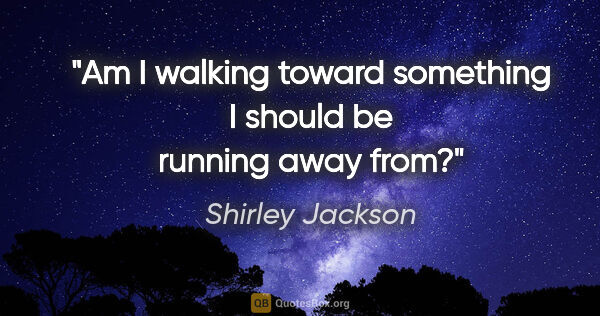Toward Quotes (page 48)
On one hand the eternal attraction of man towards femininity (cf. Gn. 2:23) frees in him-or perhaps it should free-a gamut of spiritual-corporal desires of an especially personal and "sharing" nature (cf. analysis of the "beginning"), to which a proportionate pyramid of values corresponds. On the other hand, "lust" limits this gamut, obscuring the pyramid of values that marks the perennial attraction of male and female.
Pope John Paul II
For time and eternity there have been fathers like Nathan who simply can see no way to have a daughter but to own her like a plot of land. To work her, plow her under, rain down a dreadful poison upon her. Miraculously, it causes these girls to grow. They elongate on the pale slender stalks of their longing, like sunflowers with heavy heads. You can shield them with your body and soul, trying to absorb that awful rain, but they'll still move toward him. Without cease they'll bend to his...
Barbara Kingsolver
The remarkable thing is that we really love our neighbor as ourselves: we do unto others as we do unto ourselves. We hate others when we hate ourselves. We are tolerant toward others when we tolerate ourselves. We forgive others when we forgive ourselves. We are prone to sacrifice others when we are ready to sacrifice ourselves.
Eric Hoffer
Consciousness and HealingTo proceed very far through the desert, you must be willing to meet existential suffering and work it through. In order to do this, the attitude toward pain has to change. This happens when we accept the fact that everything that happens to us has been designed for our spiritual growth.
M. Scott Peck
But the economic meltdown should have undone, once and for all, the idea of poverty as a personal shortcoming or dysfunctional state of mind. The lines at unemployment offices and churches offering free food includes strivers as well as slackers, habitual optimists as well as the chronically depressed. When and if the economy recovers we can never allow ourselves to forget how widespread our vulnerability is, how easy it is to spiral down toward destitution.
Barbara Ehrenreich
Because I could not stop for Death, He kindly stopped for me; The carriage held but just ourselves. And Immortality. We slowly drove, he knew no haste, And I had put away. My labour, and my leisure too, For his civility. We passed the school where children played, Their lessons scarcely done; We passed the fields of gazing grain, We passed the setting sun. We paused before a house that seemed. A swelling of the ground; The roof was scarcely visible, The cornice but a mound. Since then 'tis...
Emily Dickinson
Accustomed to the calm aspects of things, she turned, instead, toward the more tumultuous. She loved the sea only for its storms, and greenery only when it grew up here and there among ruins. She needed to derive from things a sort of personal gain; and she rejected as useless everything that did not contribute to the immediate gratification of her heart,? being by temperament more sentimental than artistic, in search of emotions and not landscapes.
Gustave Flaubert
What he wasn't so good at was manipulating the internal states of other humans, getting them to see things his way, do things for him. His baseline attitude toward other humans wass that they could all just go fuck themselves and that he was not going to expend any effort whatsoever getting them to change the way they thought. This was probably rooted in a belief that hed been inculcated to him from the get-go: that there was an objective reality, which all people worth talking to could...
Neal Stephenson
Whether by chance conjunction or not, the “wind-up bird” was a powerful presence in Cinnamon’s story. The cry of this bird was audible only to certain special people, who were guided by it toward inescapable ruin. The will of human beings meant nothing, then, as the veterinarian always seemed to feel. People were no more than dolls set on tabletops, the springs in their backs wound up tight, dolls set to move in ways they could not choose, moving in directions they could not choose. Nearly...
Haruki Murakami
